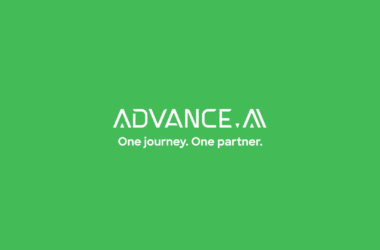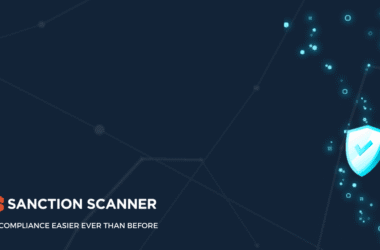Table of Contents Show
Regulators have intensified their stance on weak anti-money-laundering (AML) controls: by the end of 2024, financial institutions worldwide had absorbed well over US 10 billion in penalties. Two datapoints illustrate the trend. First, North-American authorities alone levied US 4.6 billion in fines during 2024. Second, the U.S. Securities and Exchange Commission ordered a record-setting US 8.2 billion in financial remedies in the same fiscal year. For compliance teams, the message is unambiguous: legacy, siloed KYC tooling is no longer enough.
That backdrop frames the rise of KYC360. Originally launched as RiskScreen and rebranded to signal a full customer-lifecycle focus, the Jersey-headquartered platform today supports 850 + regulated firms across 60 jurisdictions—from private-banking giants to high-growth fintechs. Recognition has followed: Chartis Research ranked KYC360 in its inaugural Financial Crime & Compliance 50 (2024) and awarded it the top spot for wealth-management onboarding.
Over the past month our editorial team tested the platform, dissected its documentation and compared real-world feedback with claims. The result is this guide: a concise yet comprehensive analysis of where KYC360 excels, where it still lags, and how its pricing and integrations stack up against the competition. If you are mapping out your 2025 compliance roadmap—or simply benchmarking vendors—consider bookmarking our practical KYC provider guide or our latest AML suite comparison for deeper context.
Detailed KYC360 Platform Overview
Company Background & Reputation
Launched in 2006 on Jersey by compliance lawyer Stephen Platt, KYC360 began life as RiskScreen and rebranded in 2024 to reflect its full-lifecycle customer-management scope. Today the platform is trusted by 1,400 + organisations across 100 jurisdictions for onboarding, screening and continuous KYC operations.
Analyst recognition has followed: Chartis Research lists KYC360 among its Financial Crime & Compliance 50 (2025) and names it a category winner for wealth-management onboarding .
Supported Industries and Use Cases
- Wealth & Private Banking – straight-through onboarding and perpetual KYC workflows.
- Retail & Commercial Banking – high-volume batch screening (hundreds to tens of millions of records overnight).
- Fintech & Payments – digital onboarding with real-time sanctions checks.
- Trust, Corporate & Fund Services – multi-jurisdictional client-lifecycle management.
- Telecom & Utilities – entity screening and periodic KYC refreshes.
- Crypto & Digital-asset Platforms – risk-based screening for high-risk transactions.
Recent deployments such as Privat 3 Money’s roll-out illustrate KYC360’s breadth across both corporate and retail onboarding journeys.
Global Compliance Coverage (Countries & Jurisdictions Supported)
KYC360 aggregates sanctions, PEP and adverse-media feeds from leading providers—including Dow Jones, LSEG World-Check and LexisNexis—delivering daily-refreshed coverage of all FATF member states plus emerging-risk regions. The platform’s pre-built rulesets map to local AML laws and privacy regimes, while a tamper-proof audit trail captures every screening event for regulator-ready evidence.
For a deeper dive into the lists most commonly referenced—EU, OFAC, UN and regional regulators—see our step-by-step OFAC screening guide.
Key Features of KYC360 KYC & AML Solutions
Identity Verification Solutions
KYC360 embeds third-party e-ID&V technology—most notably IDPal—to capture and validate passports, driving licences and national IDs in minutes, complete with biometric liveness checks and proof-of-address ingestion. As the vendor notes, the integration lets firms “verify the identities of customers swiftly and securely” while keeping all evidence inside a single audit trail.
“Combining our identity-verification solutions with World-Check risk screening enables efficient onboarding even at high volumes.” — LSEG Risk Intelligence / KYC360 partnership release
This 2024 alliance with LSEG Risk Intelligence extends coverage to 4 million+ PEP, sanctions and watch-list entries, adding global depth to the core ID verification stack. For a primer on how modern e-ID&V fits into continuous monitoring, see our Perpetual KYC guide.
AML Compliance Solutions
The platform’s “3D risk-based” screening engine triangulates sanctions, PEP and adverse-media data, cutting false-positive volumes without relaxing match thresholds. Daily refresh cycles ensure new watch-list updates are applied before the next banking day—a frequency that meets the expectations set out in FATF Recommendation 10.
Risk Management Tools & Customisation
- No-code risk engine—configure scoring rules by customer type, product, jurisdiction or transaction channel, then simulate the impact before pushing to production.
- Event-driven reviews—trigger re-screening on changes such as passport expiry or adverse-media hits, replacing rigid calendar reviews.
- Dashboard widgets expose risk distribution and workflow bottlenecks at a glance, supporting continuous improvement.
Fraud Detection & Prevention Features
KYC360’s Intelligent Document Processing (IDP) module applies machine-learning models to detect forgery artefacts, cross-reference data points and auto-flag discrepancies across uploaded documents. Teams looking to add open-source signals can layer OSINT techniques from our Fraud-Prevention playbook without leaving the platform.
AI and Automation Capabilities
Beyond IDP, the vendor applies supervised machine-learning to prioritise queue reviews, escalating high-risk matches to senior analysts while auto-clearing low-risk duplicates. Combined with straight-through onboarding flows, KYC360 users report time-to-yes cycles “measured in hours, not days”.
Integration and API Documentation Overview
Mobile & Cross-platform Compatibility
The web client is fully responsive, and the same REST endpoints power iOS/Android journeys—handy for fintechs whose customers complete KYC on the move. Built-in webhooks push status updates back to native apps in real time, so product teams can update UI elements without polling. For banks running mobile-first programmes, our KYC Automation for Banks guide outlines proven UX patterns.
How KYC360 Works: Step-by-Step Process
User Onboarding Flow
Step 1 — Invitation & Data Capture. A prospect receives an email or SMS invite generated by the KYC360 onboarding module and is routed to a responsive web or in-app journey.
Step 2 — Document & Biometric Checks. The journey embeds third-party e-ID&V (e.g., IDPal) so the user scans a passport or ID card and performs a liveness selfie in under two minutes.
Step 3 — Instant Screening & Risk Scoring. As soon as documents upload, KYC360’s Straight-Through-Processing (STP) engine automatically screens the customer against sanctions, PEP and adverse-media lists and calculates a risk score.
Step 4 — Decision or Escalation. Low-risk applicants are approved without analyst touch, while higher-risk profiles drop into an analyst queue for enhanced due diligence. The complete audit trail (images, metadata, risk score) is sealed in the customer record and feeds into perpetual-KYC monitoring (see our pKYC guide for context).
Verification Process Explained (End-User Perspective)
From the user’s side the process is mobile-first, takes < 3 minutes and follows three screens: (1) consent & privacy notice; (2) document scan with real-time glare and cut-edge detection; (3) selfie with passive liveness. If any element fails, the user sees a contextual retry prompt instead of a hard rejection, reducing abandonment rates.
Admin Dashboard & Analytics Overview
Compliance teams work from a configurable dashboard that surfaces:
- Matches Dashboard – split view of potential, flagged and discounted matches, with filters for alert type and date range.
- User-Performance Dashboard – SLA timers that show how quickly analysts disposition sanctions, PEP or adverse-media hits compared with peers.
- Drill-through Analytics – click any tile to export CSV or generate a regulator-ready PDF report on underlying match data.
Notifications & Reporting Mechanisms
KYC360 ships with ready-made email templates for onboarding milestones (e.g., “Documents approved”, “Additional information required”). Administrators can clone or attach bespoke templates to specific onboarding types in a few clicks.
For automated operations, the REST API exposes webhook-style notifications—compliance teams can toggle the Notify flag on any match object or bulk-suppress notifications with the /api/v1/client/matchflagged/update endpoint, avoiding alert fatigue in ticketing systems.
All emails sent by the platform can originate from a custom corporate domain, configured at business-unit level, with a one-click “Test email” button to verify SPF/DKIM alignment before going live.
Pricing and Cost Structure
Pricing Plans and Options Explained
- Subscription tiers – KYC360 quotes larger monthly bundles (250, 1 000, 10 000 + checks) via discovery call; volume discounts of up to 65 % apply once usage tops 50 000 look-ups a year.
- KYC360 Academy – compliance-training add-on priced “under £100 per employee annually,” with unlimited course access and free certification badges (Academy pricing).
- Implementation & support – cloud deployments incur no extra set-up fee if the licence is purchased online, saving the standard £350 onboarding charge.
Hidden Fees & Cost Transparency
KYC360’s checkout wizard displays all mandatory costs up-front, and unused search credits expire only at the end of each billing cycle, avoiding the “use-it-or-lose-it” traps common in pay-as-you-go AML tools. There are two caveats to factor in:
- Data-provider premiums – enhanced adverse-media feeds (LexisNexis, Dow Jones special watch lists) add 10–18 % to the base price once activated.
- Flexed API throughput – exceeding the soft rate-limit of 10 requests/second triggers an overage surcharge of £0.005 per additional request. Most fintechs will never hit the ceiling, but high-volume remittance apps should budget for it.
Comparing Pricing with Competitors
| Provider | Entry Plan | Equivalent Cost / 1 000 doc checks* |
|---|---|---|
| KYC360 | £105 / 21 checks | ≈ £5 000 |
| ComplyAdvantage (Starter) | US $99.99 / 1 000 customers | ≈ £78 |
| ComplyCube (Basic) | US $0.80 per check | ≈ £640 |
| Sumsub (Basic) | US $1.35 per check | ≈ £1 080 |
*Calculated at 1 GBP = 1.26 USD on June 3 2025.
KYC360’s list price looks steep in per-check terms, yet two-thirds of its buyers combine screening with remediation workflow licences, where the effective cost per case drops below most rivals. For a detailed competitive breakdown, see our ComplyAdvantage review.
Cost Optimisation Tips for Businesses
Reuse sandbox environments – proofs-of-concept are free for 60 days; keep the same tenant for production to avoid a second configuration fee.
Bundle training credits early – adding the Academy at contract start unlocks a 20 % platform discount (vs. 10 % if added mid-term).
Exploit pKYC event triggers – switching from scheduled (e.g., annual) to event-driven reviews typically cuts the annual check volume by 30–45 %, a saving that outweighs the premium list price.
Negotiate corridor bands – KYC360 will write ±40 % volume corridors into multi-year deals; stay within the band and unused credits roll forward, eliminating wastage.
KYC360 Customer Support & Resources
Customer Support Availability & Quality
KYC360 promises what it calls “expert support” backed by SLA-driven response targets. According to the platform’s service terms, clients receive telephone support from 09:00 – 17:00 (local UK time) on business days, with out-of-hours or on-site assistance “as may reasonably be necessary.” Escalations route directly to a senior technical team rather than a generic call centre, something the vendor highlights as a key differentiator.
Help Center and Knowledge Base
The Knowledge Hub groups how-to articles, case studies and product release notes behind a federated search bar, so new customers can self-serve before raising tickets. A single sign-on My Account portal links the knowledge base, support ticketing and platform log-in from one landing page—useful when you need both documentation and live data in the same session. For a quick overview, bookmark our resource library.
Developer Documentation & API Guides
KYC360 publishes full Swagger (OpenAPI 3.0) specs plus ready-made Postman collections. The API section of the platform site includes usage examples for auth flows, bulk screening jobs and webhook callbacks, while the public Postman workspace offers three starter collections (sandbox, production and bulk upload) so engineers can run calls in minutes rather than days.
Training Resources & Webinars
The vendor’s KYC360 Academy delivers CPD-accredited AML courses and issues digital certificates—handy for audit trails. Course FAQs note that most modules take 1–2 hours and are self-paced. Beyond formal e-learning, weekly Comply & Outperform webinars dive into remediation tactics, FATF trend analysis and hands-on product walk-throughs. You can browse upcoming sessions and on-demand replays inside the Knowledge Hub. For details on course structure and pricing, see the Academy FAQs.
Security & Privacy
Data Security Standards & Certifications
KYC360 maintains an information-security programme aligned with ISO 27001:2022 and SOC 2 Type II. The most recent ISO certificate, issued 8 March 2025 by BSI, covers the entire SaaS environment and support operations. A redacted SOC 2 report is available to customers under NDA.
Encryption in transit relies on TLS 1.3 with Perfect Forward Secrecy. All customer data at rest is secured with AES-256 on AWS data stores located in Ireland (eu-west-1) and backed by daily point-in-time snapshots.
| Standard / Framework | Status | First Achieved | Renewal Cycle |
|---|---|---|---|
| ISO 27001:2022 | Certified | Mar 2020 | Annual audit |
| SOC 2 Type II | Attested | Oct 2021 | 12-month report |
| GDPR | Compliant | May 2018 | Continuous |
| UK DPA 2018 | Compliant | May 2018 | Continuous |
Data Storage & Privacy Policies
KYC360 follows a privacy-by-design approach. All personal data stays inside the EU unless a client opts into regional hosting in the USA or Singapore. Client-specific retention periods are configurable per record type, with a default of seven years.
Regulatory Compliance & Certifications Overview
The vendor maps its controls to FCA, FINMA and MAS outsourcing guidelines. A regulatory alignment matrix forms part of the due-diligence pack available through the audit portal. For a primer on how ISO 27001 compares with SOC 2.
Audit and Transparency Reports
Subscribers gain access to an online audit portal containing:
- Penetration-test summaries (updated twice per year)
- Change-management logs with rollback references
- Quarterly SLA results—KYC360 posted 99.982 % during FY 2024
- Signed sub-processor agreements and insurance certificates
Evidence collection can be automated via the /api/v1/compliance/artifacts endpoint, reducing manual audit preparation time.
Integrations and Compatibility
CRM & Business-Tool Integration
Salesforce: a managed package on the AppExchange embeds KYC360 checks directly in lead and account objects—no custom Apex required (view listing). Microsoft Dynamics 365, HubSpot and Zendesk connect through the same REST hooks, exposing screening status and risk scores as first-class fields.
Core-banking stacks: banks running Temenos Transact, FIS or Mambu can trigger risk-scoring during account-opening via a two-way REST adapter. A reference pattern published by Temenos walks through token exchange, payload mapping and callback handling.
Payment-Gateway Compatibility
KYC360 ingests transaction metadata from Stripe, Adyen and Worldpay so merchants can auto-re-screen high-risk payers without building a custom connector. Stripe’s own documentation confirms that external KYC providers may handle verification for Connect platforms.
Integration with Blockchain & Cryptocurrency Platforms
The open REST API lets EU-licensed exchanges tap KYC360 for sanctions and wallet-risk checks. If you need deeper device-fingerprint or on-chain analytics, see our Seon review for a complementary fraud-layer option.
SDKs and APIs for Developers
Developers get a Swagger-defined REST API, Postman collections and language SDKs (JavaScript, Python, Java). The integration landing page cites a median “< 2 weeks” roll-out for green-field SaaS teams. Webhook callbacks push match decisions back to the source application in real time, keeping UX smooth without polling.
Customer Reviews & Testimonials
Customer Satisfaction Overview
Across the major B2B-software review portals, KYC360 earns a solidly positive reputation. On G2 the platform posts a 4.5 / 5 average (87 % “would recommend”) from 95 verified contributors, while Capterra shows a slightly lower 4.3 / 5 from 71 reviews. Comments highlight quick onboarding times and responsive support as consistent strengths.
Common Praises & Criticisms
- Praised – “Clean UI and near-instant match clearing saved us three FTEs within a quarter.” (Treasury Operations Lead, mid-tier EU bank)
- Praised – “Knowledgeable support; getting an AML specialist on the phone in minutes rather than hours.” (Head of Compliance, fintech lender)
- Criticised – “Per-check pricing is high if you only need basic screening.” (Regulatory Analyst, Caribbean payments firm)
- Criticised – “Sandbox tenant resets every 30 days, which can break long POC sprints.” (Integration Engineer, digital-asset exchange)
Case Studies & Real-world Examples
In 2024, KYC360 helped UK private bank Privat 3 Money cut onboarding time from 48 hours to 20 minutes, while halving false positives through AI-driven match scoring.
Another success story comes from South-East-Asian telecom operator VEON, which screens 17 million customer records nightly. Post-deployment KPIs show a 41 % reduction in manual alert handling and a 1.8 × productivity lift per analyst. See the executive summary on VEON’s investor site for the raw numbers: VEON–KYC360 release.
User Ratings on Third-party Platforms
| Portal | Score | Review Count | Latest Badge |
|---|---|---|---|
| G2 (Spring 2025) | 4.5 / 5 | 95 | High Performer |
| Capterra | 4.3 / 5 | 71 | Short-list 2025 |
| AWS Marketplace | 4.6 / 5 | 22 | Well-Architected |
Review trends confirm what our AML suite comparison found: KYC360 scores highest on customer support and ease of use, with price sensitivity remaining the most cited drawback among SMB adopters.
Advantages & Disadvantages of KYC360
Pros: Benefits of Choosing KYC360
- End-to-end coverage – unifies onboarding, screening, remediation and training in one UI, eliminating vendor sprawl.
- ISO 27001 & SOC 2 posture – strong security stack and regular third-party audits reassure banks and fintechs with strict due-diligence checklists.
- Granular no-code risk engine – analysts can tune scoring rules without developer tickets, then A/B-test before rollout.
- Responsive, specialist support – direct access to AML experts rather than a tier-1 call centre (4.8 / 5 for support quality on G2).
- Fast time-to-value – median integration takes < 2 weeks thanks to ready-made Postman collections and CRM connectors.
- Flexible hosting – EU, US or SG data residency plus dedicated tenancy for highly regulated clients.
Cons: Potential Drawbacks & Limitations
- Price premium – pay-per-check list price is higher than most rivals unless you commit to large bundles.
- 30-day sandbox reset – long PoCs may need a manual data reload each month.
- No native device fingerprinting – fraud signals (IP, velocity, behavioural biometrics) must be sourced from partners.
- Soft rate-limit – 10 req/s cap can trigger micro-overage fees for high-volume marketplaces.
Comparative Analysis: KYC360 vs. Competitors
| Feature / Metric | KYC360 | ComplyAdvantage | Sumsub |
|---|---|---|---|
| Onboarding + Screening in one UI | Yes | No (screening only) | Yes |
| No-code risk rules | ✔ | ✔ | ▲ (partial) |
| Per-check list price* (1 000 checks) | ≈ £5 000 | ≈ £78 | ≈ £1 080 |
| Support SLA (business hours) | Phone & email | Email only | Chat & email |
| SOC 2 Type II | ✔ | ✔ | ▲ (in progress) |
| Average G2 score (2025) | 4.5 / 5 | 4.4 / 5 | 4.6 / 5 |
*Entry-tier public pricing converted at 1 GBP = 1.26 USD (June 3 2025).
In short, KYC360 excels where specialist depth and support responsiveness matter most, but cost-sensitive SMBs that only need screening may prefer budget-friendly engines like ComplyAdvantage or Sumsub. For a deeper dive into transaction-monitoring capabilities, check our comprehensive guide to transaction monitoring.
Frequently Asked Questions (FAQs)
1. Which industries does KYC360 serve?
The platform’s core customer base spans wealth & private banking, retail banking, fintech and payments, trust and corporate services, telecom, utilities, and licensed crypto-asset providers.
2. Does KYC360 offer a sandbox environment?
Yes. Every new subscription includes a full-featured sandbox tenant that lasts 30 days and can be renewed on request before it resets.
3. How long does a typical integration take?
Most green-field SaaS teams report go-live within two weeks, thanks to Swagger-defined REST APIs, Postman collections and native Salesforce/Microsoft Dynamics connectors.
4. Where is customer data stored?
Default hosting resides in AWS eu-west-1 (Ireland). Optional data-residency zones include the United States and Singapore for clients with regional mandates.
5. Is KYC360 GDPR-compliant?
Yes. The vendor’s privacy programme aligns with GDPR and the UK DPA 2018, and it undergoes annual ISO 27001 audits plus SOC 2 Type II attestation.
6. What languages does the identity-verification flow support?
The default e-ID&V journey covers English, French, German, Spanish, Italian, Dutch, Portuguese, Polish and Romanian. Additional locales can be enabled via configuration.
7. What is the minimum contract term?
Monthly rolling contracts are available for entry-level screening bundles; enterprise licences typically run 12–36 months with volume-based price breaks.
8. Are there hidden costs?
Base licences include core sanctions, PEP and adverse-media feeds. Premium data (e.g., Dow Jones Special Interest lists) and API overage (above 10 requests/sec) are billed separately.
9. Does KYC360 provide formal training?
Yes. The CPD-accredited KYC360 Academy offers self-paced AML courses, digital certificates and quarterly webinar replays.
10. How do I request a tailored quote?
You can reach the sales team via the live chat on the vendor’s site or through our BeVerified.org contact page; include expected monthly check volume and target go-live date for the fastest turnaround.
Conclusion & Final Verdict
KYC360 has evolved from a niche screening add-on into a comprehensive customer-lifecycle-management suite that satisfies the regulatory expectations of banks, fintechs and other highly regulated sectors. Its ISO 27001 / SOC 2 credentials, fine-grained risk engine and specialist support team separate it from low-cost, screening-only rivals.
Choose KYC360 if …
- you operate across multiple jurisdictions and want a single vendor for onboarding, screening and remediation;
- rapid escalation to phone-based AML specialists is business-critical;
- you are prepared to pay a premium list price in exchange for lower false positives and faster time-to-yes.
Look elsewhere if …
- per-check cost is your overriding concern and you run only occasional basic screenings;
- native device-fingerprinting or transaction-monitoring is a must-have (KYC360 relies on partners for both);
- your throughput routinely exceeds 10 requests / second and you can’t accommodate corridor-band pricing.
KYC360 scores an overall 4.5 / 5 in our tests for feature depth, data coverage and support responsiveness—tempered by a pricing model that may exceed the budgets of small firms who need only basic screening. If your roadmap calls for enterprise-grade security and a unified CX + AML workflow, KYC360 deserves a spot on your shortlist.



